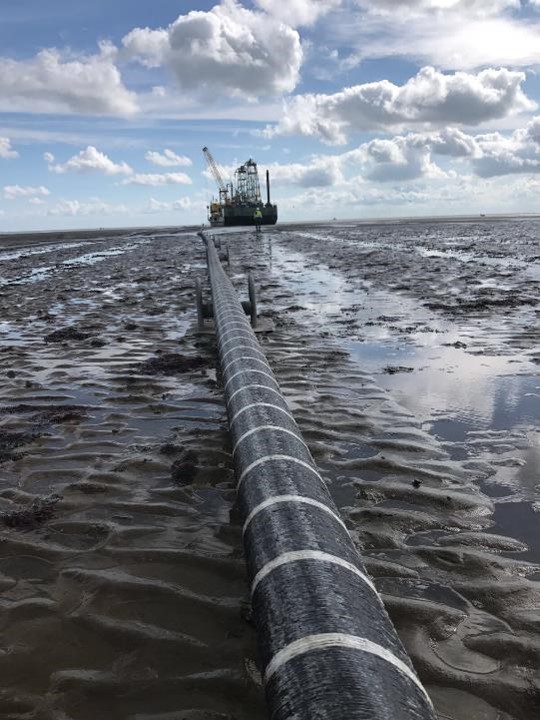
National Grid welcomes major milestone for the UK’s first hybrid interconnectors to connect offshore wind
Today Ofgem announced it has approved the Initial Project Assessment for the LionLink and Nautilus electricity interconnectors, which determines the needs case of new projects for British consumers.
LionLink and Nautilus are pilot projects, defined as Offshore Hybrid Assets. They would not only connect national transmission systems, but also offshore wind farms based in Dutch and Belgian territorial waters, respectively. Both potential projects are first-of-a-kind, reflecting the same technological innovation required to deliver the longest land and subsea interconnector in the world, National Grid’s Viking Link. LionLink is being developed with Dutch transmission system operator, TenneT, and Nautilus is being developed with Belgian transmission operator, Elia.
Should they proceed, the projects would have a combined capacity of 3.2GW and would significantly increase interconnector capacity, which the UK Government, National Energy System Operator, and Climate Change Committee have all highlighted as essential to not only hitting our net zero targets, but also ensuring customers receive low cost and secure power now and in the future. The two projects are forecast to deliver a combined £674million in benefits to consumers in the first ten years of their operations.
National Grid Ventures’ participation in these projects is conditional on a final investment decision which amongst other things will require certainty on an acceptable economic regulatory regime for the projects.
Ben Wilson, President of National Grid Ventures said: “Ofgem’s approval of LionLink and Nautilus’ Initial Project Assessment is welcome news and an important step towards having the regulatory certainty we need to build these projects. It's important that the regulatory arrangements are now finalised and deliver an investible framework.
"Consumer demand for electricity is set to double in the next 25 years and, if built, these interconnectors would provide the invaluable flexibility we need in the system for both now and in 2050. Between them, LionLink and Nautilus would have the capacity to power 4.2 million UK homes, supplying clean, secure, renewable energy and reducing greenhouse gas emissions.”
Manon van Beek, CEO of TenneT said: “LionLink is the first step towards future offshore hubs configured in a meshed offshore DC grid. This hybrid interconnector supports decarbonisation, energy independence/transition and strengthens British, Dutch and European security of supply. We welcome this big next step in the development of the connection between the UK and the Netherlands. There are still challenges ahead, but we are confident that our joint teams, suppliers and governments will make this project a resounding success.”
Frédéric Dunon, CEO Elia Transmission Belgium said: "Nautilus is an important project for our country's energy supply. Because our own offshore wind potential is limited, we need electrical connections to countries that will have surplus wind energy in the future, such as Britain. Nautilus will strengthen our security of supply and provide access to competitive energy prices. This will strengthen the competitiveness of our energy-intensive industry. Because of the hybrid nature of the interconnector, we are also choosing the most efficient solution."
As a result of this process, National Grid can now confirm that if it proceeds Nautilus would connect at the Isle of Grain, Kent.
Ben Wilson said: “Community and stakeholder feedback has been essential to the evolution of Nautilus. We have always advocated for the Isle of Grain as the best location for Nautilus given it’s already a major hub for energy infrastructure and has the potential to offer the shortest offshore cable route to Belgium. This view was reinforced by community and stakeholder feedback. Now that Ofgem has approved Nautilus, we will continue to develop the project at Grain and look forward to engaging the community on our plans during future consultation.”
Notes to editors
- The Initial Project Assessment (IPA) is a consultation process run by Ofgem whereby the Regulator determines interconnector projects’ suitability for the Cap and Floor regime.
- LionLink and Nautilus have run three public consultations with stakeholders and members of the public, receiving over 2,000 pieces of feedback.


